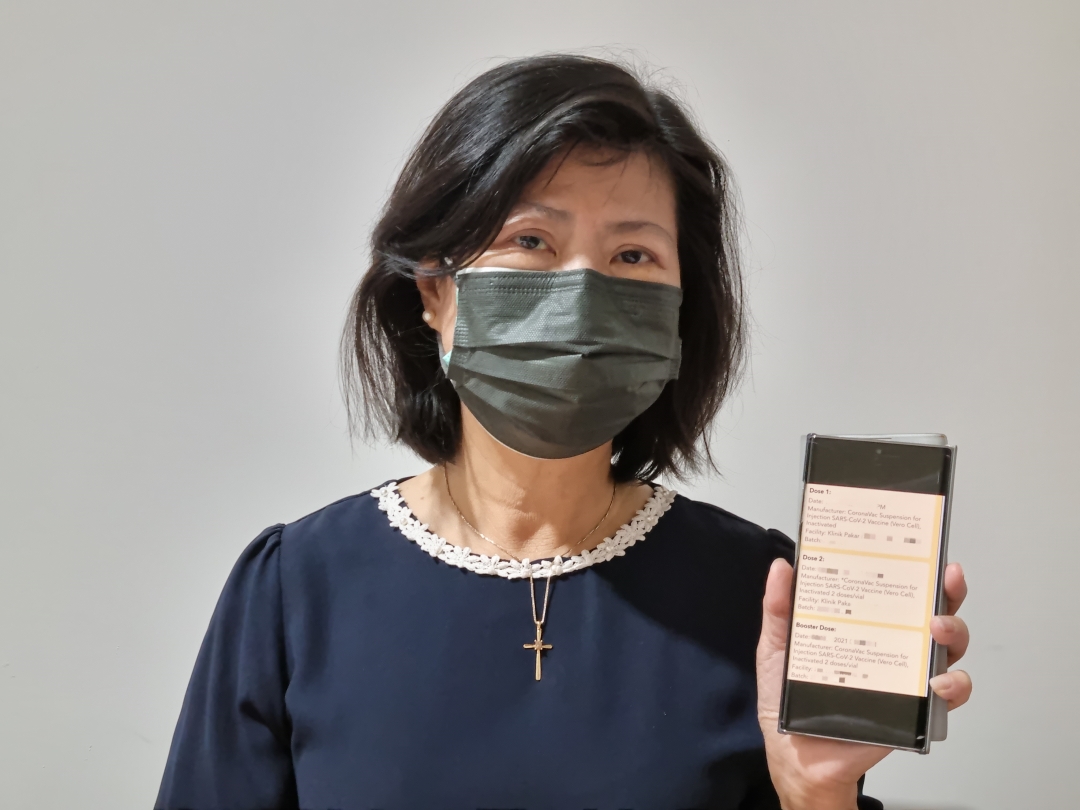
Chang shows on her smartphone what she regards as proof of a Sabahan having received the Sinovac vaccine as booster shot.
SIBU (Nov 10): Bukit Assek incumbent Irene Chang wants answer from the government as to why the Sinovac booster vaccine is already available in Sabah, but not in Sarawak.
She opined that given that in Sarawak, 77.7 per cent of the population had been inoculated with the Sinovac vaccine for their first and second doses, and that the majority of the people were still reluctant and very concerned about the ‘mix-and-match’ approach, the state government should have made sure that the Sinovac booster would be available to these people as soon as possible.
Chang claimed that she had sighted a MySejahtera digital certificate of a Sabahan, which showed his first, second and booster vaccine doses were all Sinovac.
She said the government must realise that no matter how much data had been presented to show the safety of the ‘mix-and-match’approach in dispensing the booster shots, there were still people who could not be convinced by the data.
“There are also people who are concerned about the long-term effects, which no data about it is available at this moment.”
Chang noted that the statisticsrelated to those who had received the booster shotswere still low, with the majority of the elderly people rejecting the appointment scheduled on their MySejahtera app.
“And with the state election to be called within the next few weeks, it is irresponsible not to make sure that the Sinovac booster, as well as all other approved boosters, would be available to the people first before they could exercise their right to vote.”
Chang also called upon Sarawak Disaster Management Committee (SDMC) to provide alternative arrangements for unvaccinated individuals to enter government premises, especially the Urban Transformation Centres (UTCs), to perform tasks or access certain services.
She suggested allocating certain time or days for them so that they could enter these premises.
She acknowledged that while it was understood that many people would feel more secure knowing that all visitors to these premises had been vaccinated, it would not be right to punishthose who, for any reason, could not or refused to receive vaccination.
“There is no legislation in the country that calls for mandatory vaccination,” she said.
She pointed out that it had been three months since the ‘no vaccination, no entry’ policy took effect at government-run premises like the UTCs, but on the other hand, the state had achieved the target of having over 90 per cent of its population aged 18 and above vaccinated.
“It is, therefore, time for the government-run premises, especially the UTCs, to relax their entry policy, while still maintaining stringent SOP (standard operating procedures) in place.”
